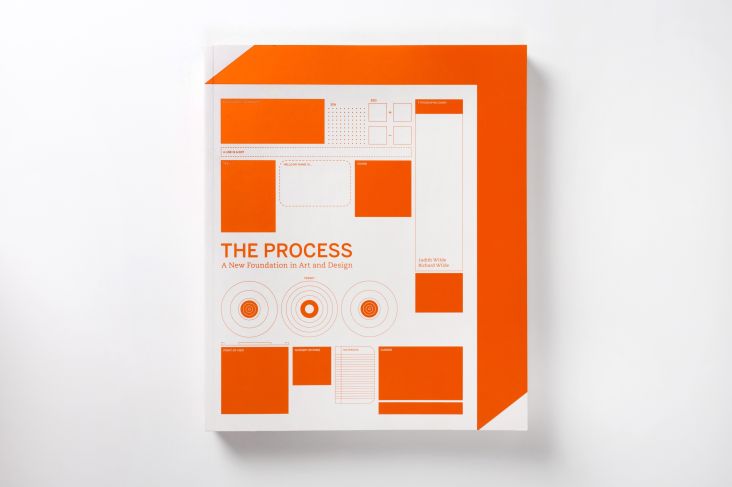13 unlucky things that could go wrong for a freelancer, and how to tackle them
It’s Friday the 13th, so we thought it would only be appropriate to look at those things that can go wrong for unlucky freelancers, and offer some solutions on how to deal with them – or even prevent them from happening in the first place.

Image licensed via Adobe Stock
Everything from tackling money issues to dealing with demanding clients, from illness and stress to working too hard, we’ve compiled a list of anything that could turn sour while running your own business.
1. You have cash flow issues
If there’s one golden nugget of advice I can give you, it’s this – save up a reserve of money before you even think about going freelance. You won’t have a reliable salary anymore, so ensure you’ve got some cash in the bank to anticipate those times when clients are overdue on their invoices or unexpected costs arise.
How do you maintain healthy cash flow? One essential tip is to ask for deposits upfront before any work begins and even ask for staged payments throughout larger projects. That way, you’ll be able to cover yourself adequately, as you go along.
Another important tip is to make sure you send your invoices promptly, as soon as the work is complete. Get into a healthy, routine of sending and chasing invoices.
You might even consider running background checks on new clients, to ensure you’re working with a legitimate company. The Gov.UK website offers a beneficial tool on getting information about a company.
Or why not do what I do, and insist on payment upfront for the initial three months of your new client relationship, explaining that it’s merely a cautionary procedure that you use with all new accounts.
2. You’re not getting paid on time
If a client is taking too long to pay an invoice, then most freelancers will initially try to resolve things amicably. But if this isn’t possible, the first step is to send a solicitor’s letter requiring payment.
It’s then pretty straightforward to file a court claim for unpaid fees. However, if your client disputes the claim, the costs of legal action could be high. Also, it’s worth noting that many claims to the Small Claims Court end up going unpaid.
Perhaps a better solution to chase debts is to join the Federation of Small Businesses, who offer 'no collection/no fee' services.
To prevent late payments in the first place, you could insist on being paid upfront for work, or at least request a deposit plus staged payments on larger projects. It won’t do any harm. You’re within your rights to set your payment terms.
For further reading, check out our article on how to tackle overdue invoices and ensure you get paid. Or you could read how to make sure you get paid by clients for some extra tips.
3. Your client goes bust before you're paid in full
Sometimes, there’s no real warning, and a client can go out of business before you’ve even been paid for the work you’ve done. So where do you stand as a freelancer? What are your rights to ensuring you get your money?
When your client has gone into liquidation or bankruptcy, you should lodge a claim with the insolvency practitioner or trustee in bankruptcy. This official will sell the client’s property and use the proceeds to pay creditors. You are entitled to payment from the profits, but if these are not sufficient to cover all creditors, your claim will be low in the pecking order.
In the meantime, anticipate the worst-case scenario by having a great relationship with your client’s accountant or accounts department, keeping in regular contact to ensure your invoices get paid on time. If you’ve not been paid for more than three months, and three invoices are overdue, consider not doing any further work until those have been paid. It’s just a simple measure to protect yourself.
4. Your work dries up
It’s one of your biggest fears as a freelancer, what will happen if the work stops coming in? Prevent this from even happening by having a daily focus on your marketing.
Make sure you get out there and network to meet other freelancers and agency owners. Tweet and be active on social networks. Send out a regular newsletter to your existing clients to remind them of your services. Try and get your work regularly published on popular industry blogs and online magazines.
Read this article on 100 inspiring ideas to market your business for further inspiration. Or check out this advice on how to generate new leads.
5. You become ill and can’t work
When you become self-employed, you’ll need to think about what will happen if you can’t work because of illness or injury. Because you’re working for yourself, you won’t get sick pay, though you may qualify for state benefits.
Apart from having savings in place, you’ve got various options available to you, in terms of personal insurance. There’s ‘Income Protection’, a long-term insurance policy designed to support you if you can’t work because you’re sick or injured. It aims to replace part or all of your previous after-tax income, and will typically pay out monthly payments up to your average retirement age.
There’s also ‘Critical Illness’ cover, an insurance policy that’s usually paid as a lump sum, where you’ll get a tax-free chunk if you’re diagnosed with one of the serious illnesses covered by your policy, such as cancers, heart attack and stroke. It’s worth noting that common ailments, such as back problems and stress, are not covered in these types of policies.
Then you should even consider ‘Life Insurance’, which will pay your dependents a lump sum, or regular payments, should the worst happen and you die. Read more about what’s available if you’re self-employed.
6. You end up with a nightmare client
They seemed nice when you first met them, but clients can sometimes turn into over-demanding, stressful monsters that make your working life miserable. So how do you tackle those nightmare customers?
Well, you should first learn to spot those demanding clients before it’s too late. Then, if you want to get rid of them gracefully and not burn any bridges, you’ll need to read our tips on how to turn business away professionally.
However, if you’re already too far down the line and can’t escape, then there are ways you can tackle those problematic characters. Read our tips on how to deal with difficult clients, and you should be on the right track.
7. You forget to save for your tax bill
You know how it goes. Everything seems like it’s going well, there’s money in the bank and clients are happy. When suddenly, you’re hit with a larger-than-expected tax bill.
As you (should) know, freelancers will be paid gross – before tax – and it’s up to them to make sure the taxman gets the correct amount of both income tax and classes 2 and 4 National Insurance contributions (NI). Class 2 NI is a fixed amount each month while class 4 is a percentage of your profits each year.
Therefore, the golden rule of successful freelancing is to make sure you save enough money to pay your tax and NI when it’s due and stash it away in a separate, preferably high interest, savings account every time you get paid.
For further help, the HMRC website has a handy Ready Reckoner tool which shows you, depending on your profit, roughly how much money you need to save each month, or year, to pay the taxman.
8. You get sued by a client, or things go wrong
We all make mistakes. As a sole trader, you could be held personally liable for anything that goes wrong on a project. So if you have no adequate insurance in place, you could be in for a nasty shock and risk your entire livelihood.
I can’t stress this enough, protect yourself and your business by taking out relevant insurance, such as Professional Indemnity. It will cover you if a client sues you because they are unhappy with the work you have done or advice you have given.
With the above in mind, you should also double-check whether you are required by law to have specific insurance policies in place. Because the cover you need to take out depends on the type of business you are, and the industry you’re in. You might also want to have the reassurance of other optional insurance covers.
What’s more, if you employ another person, you are legally required to take out Employers' Liability insurance. You will need cover of at least £5 million, and you must display your certificate of insurance where employees can easily read it. You can expect a hefty fine for failing to have a policy in place.
Most small businesses also take out public liability insurance. You’ll need this too. Especially if your customers visit you on your premises or if you do work on theirs. It will protect you if a third party injures themselves, or damage is caused to property because of your business activities.
9. Your key contact leaves his or her position
When you work for a large company, that might have its marketing department, you’ll often have one key contact who hired you in the first place, and you’ve got a great relationship with. So what happens if they leave and go elsewhere?
Congratulate your contact on their new position and ensure you stay in touch. Offer to help and emphasise how much you’ve enjoyed working for them and how you’d love the opportunity to continue doing so. If you’re feeling brave, ask for an introduction to the replacement. Yes, new people often bring their freelance staples with them. But it never hurts to ask, especially if you’ve got a solid reputation with the company in question.
10. You’re working long hours and overdoing it
Ok, so too much work might not seem like such a bad thing for any freelancer. But when you’ve got to deal with all the other stuff as well – accounts, admin, business management, marketing, phone calls, emails – it can all become overwhelming and take over your life.
Our advice is to consider reviewing various aspects of your business. First up, are you charging enough? It might be that you’re too cheap and therefore having to work long hours to make ends meet. In which case, review your day/hourly rate and consider charging more to new customers who enquire. Read our tips on how much to charge for freelance work. You should also review your existing clients and look at perhaps raising your rates with them. A scary step, I know. But this article, on how to increase your rates without losing clients, should point you in the right direction.
Next, consider your existing clients in general. Are some holding you back or demanding too much of your time? Could you perhaps let some go to free up time to support more profitable clients? Read our article on how to weed out unwanted clients and grow your business. Or check out our tips on how to move away from low-quality clients, work less and earn more money.
11. You get burnout and can’t cope
‘Burnout’ is a word we often hear in the creative industries, particularly amongst freelancers. It’s a state of emotional, physical and mental exhaustion caused by excessive and prolonged stress.
Burnout leaves you feeling overwhelmed and unable to cope with the most simple tasks. It can make you lose all interest or motivation in your work, and you might also become helpless, cynical or even resentful. Eventually, you might want to hide under your duvet and never emerge from your bedroom again.
It's not a situation you want to find yourself in when freelancing. It’s therefore hugely important to recognise the warning signs before it’s too late and take proactive steps to ensure it doesn’t happen to you.
These steps can be as simple as taking regular breaks, learning to switch off and enjoying plenty of digital detoxes. You have to understand that you’re not a superhero, and you need to be kind to yourself to stay healthy. Read our tips on how to recognise, prevent and deal with burnout. And keep your workspace healthy with these smart tips and tricks.
12. Your client isn’t happy with your work
When things go wrong, and a client isn’t satisfied with what you produce, it can be soul-destroying. If you’ve just got bad feedback from your client, then don’t be disheartened. There are ways to turn things around and resolve the situation.
Firstly, you need to keep calm and identify the problem. Ask your client lots of questions and listen to what they’re saying. Re-establish the entire brief and get their requirements in writing so that you can refer back to them in future. Once you’re fully confident that you know what they’re after, go away and try again. Make sure you keep the communication channels open during the process, and go above and beyond your client’s expectations to deliver what they want. Read these further tips on how to deal with an unhappy client.
13. You fall out of love with freelancing
You've been freelancing for a long time, and you've had plenty of ups and downs. Sometimes, it feels as though there are more bad times than good, and just lately, you're feeling a bit fed up with it all.
No one ever said freelancing was easy. It's one of the hardest things you can do. You've got to push to find more work, keep existing clients happy and ensure you can pay your bills every month. It’s stressful, that’s for sure.
It's easy to see why so many people fall out of love with freelancing. But before you give up and start looking for a full-time job, you should reconsider all the reasons why you went freelance in the first place: the chance to be your boss; have higher earning potential; take more time off (in some cases) and have the ability to say no and choose what work you do. Freelancing really can be a beautiful thing.
Read our tips on how to fall back in love with freelancing or perhaps even check out how to get the most out of your freelancing life.




 by Tüpokompanii](https://www.creativeboom.com/upload/articles/58/58684538770fb5b428dc1882f7a732f153500153_732.jpg)


 using <a href="https://www.ohnotype.co/fonts/obviously" target="_blank">Obviously</a> by Oh No Type Co., Art Director, Brand & Creative—Spotify](https://www.creativeboom.com/upload/articles/6e/6ed31eddc26fa563f213fc76d6993dab9231ffe4_732.jpg)
















